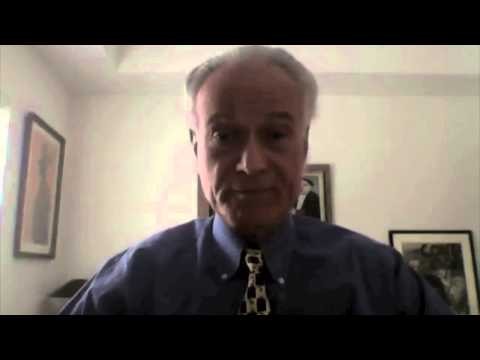Hedge Funds Circling Venezuela as Yields Top 15% Andes Credit Bloomberg Business
Post on: 16 Март, 2015 No Comment

Sept. 23 (Bloomberg) — Hedge funds are stepping in to fill a vacuum in Venezuela’s bonds as deepening concern the nation will default triggers an investor exodus.
The debt, which suffered the worst selloff in emerging markets as Standard & Poor’s cut the country’s rating to CCC+ and predicted at least a 50 percent chance of non-payment in two years, has become increasingly attractive to firms including Greylock Capital Management LLC and Callaway Capital Management LLC. The government notes now yield 15.7 percent on average, the most in developing nations, while bonds from the state-owned oil producer are also among the cheapest dollar-denominated corporate securities in the world.
With default rates falling as central banks hold down borrowing costs and flood the financial markets with trillions of dollars of cheap cash, Venezuela is emerging as an alternative for hedge funds looking to invest in distressed assets, Maglan Capital LP said. Daniel Freifeld, Callaway’s co-founder, is betting Venezuela has enough money to pay debt in the short term even as foreign reserves hover near an 11-year low and economists project the worst contraction since 2009.
“The real story is the degree of hype and panic out there,” Freifeld, who helps oversee the Washington-based hedge fund, said in an e-mail. “Everyone is running for the doors. Are there risks? Sure. But not to the degree people believe.”
Default Concern
Venezuela, which has $4.5 billion of debt due in October, has fallen 10.5 percent in the bond market this month as President Nicolas Maduro removed his main economic adviser, fueling concern he would delay or scrap measures to shore up the nation’s finances.
The rout deepened as Harvard University economist Ricardo Hausmann questioned Venezuela’s decision to pay bondholders at a time when a dwindling supply of U.S. currency has fueled chronic shortages of basic goods from toilet paper to milk and left the country billions of dollars in arrears to importers.
On Sept. 16, S&P cut Venezuela’s rating, citing the country’s faltering economy and soaring inflation. The CCC+ rating, which is in the lowest category of speculative grades, implies that Venezuela is “currently vulnerable to non-payment.”
Some bondholders aren’t allowed to hold notes that are rated below a certain grade, which may cause some mutual funds to unload their holdings after a downgrade, according to Lawrence White, a professor at New York University’s Leonard N. Stern School of Business.
Puerto Rico
“A ratings change will sometimes trip one of these guidelines,” White, who has testified before Congress on ratings companies, said by telephone. “It all depends on the institution and the rules they set out.”
After mutual-fund holdings of Venezuelan debt reached a nine-month high in June, selling these investments will take time and may continue to depress the country’s bond prices, according to Siobhan Morden, the head of Latin American fixed-income strategy at Jefferies Group LLC.
Hedge funds that scooped up the distressed municipal bonds issued by Puerto Rico, the U.S. territory that’s struggling with a $73 billion debt load and was cut to junk in February, are among the investors now studying Venezuela, said David Tawil, co-founder of Maglan Capital, a distressed-debt hedge fund.
Puerto Rico’s 10-year obligations yield about 8.5 percent, equal to about 14 percent for taxable investors in the highest federal income bracket. That’s about 1.4 percentage points less than yields on Venezuela’s similar-maturity bonds.
‘Get Smoked’
“This smells of distress,” Maglan, who isn’t planning on investing in Venezuela, said by phone from New York. “These are potentially binary situations, where you either sail home and look like a king or get smoked and don’t get paid anything.”
A dearth of investment opportunities arising from corporate debt defaults and restructurings has also prompted Marathon Asset Management LP to change tack, according to co-founder Bruce Richards.
The trailing 12-month global default rate for speculate-grade corporate debt was 2.1 percent at the end of August, down one percentage point from a year earlier and below the historical average of 4.7 percent since 1983, according to Moody’s Investors Service.
Foreign Reserves
“There’s not a lot of distressed debt right now,” Richards, who oversees $12.5 billion at the New York-based distressed debt hedge-fund firm, said in an interview yesterday with Bloomberg Television’s Erik Schatzker and Stephanie Ruhle. “We’re finding our opportunities by surfing the world.”
Marathon has bought debt from Puerto Rico and Argentina, which defaulted on its overseas bonds in July.
Gabriel Szpigiel, co-head of Marathon’s emerging-markets group, declined to comment on Venezuela.

Venezuela, which has $21.5 billion of currency reserves, is also attracting hedge funds that are betting that even in a default, the country’s oil wealth will ensure creditors are able to recover more money, according to Bill Geisler, a money manager at hedge fund Ice Canyon LLC. Venezuela has the world’s largest known oil reserves.
“If you look at it from the stock-of-assets perspective rather than the cash flow, Venezuela sits pretty,” Geisler said by phone. “That’s why the market has struggled so long with Venezuela. From an asset point of view, they shouldn’t have a problem.”
Recovery Estimate
Geisler declined to say whether the hedge fund owns Venezuelan bonds.
In a debt restructuring, bondholders may recover at least 65 cents on the dollar, according to David Spegel, a strategist at BNP Paribas SA. Venezuela’s benchmark bonds due in 2027 traded at 69.1 cents on the dollar at 9:21 a.m. in New York.
Bonds of Petroleos de Venezuela, the oil company, trade as low as 51 cents on the dollar, the fifth-cheapest dollar-denominated corporate bonds that aren’t in default and have more than $1 billion outstanding tracked by Bloomberg.
Increased investor interest has made PDVSA’s bonds the most heavily traded dollar-denominated debt in the world this month, the first time that’s happened in at least a year, data compiled by Bloomberg show.
Diego Ferro, co-chief investment officer at Greylock, which holds Venezuelan bonds, says the nation still has the wherewithal to meet obligations.
“The situation is getting worse, but we still believe it is about willingness, not capacity to pay,” Ferro said in an e-mail. “We do not see this selloff as any different from others in the past that just represented a buying opportunity.”
To contact the reporter on this story: Katia Porzecanski in New York at kporzecansk1@bloomberg.net
To contact the editors responsible for this story: Brendan Walsh at bwalsh8@bloomberg.net Lester Pimentel, Bradley Keoun














